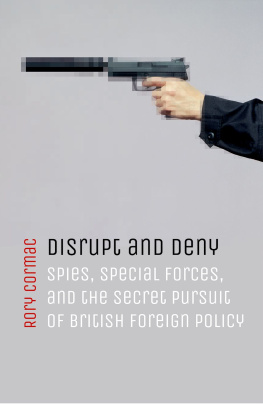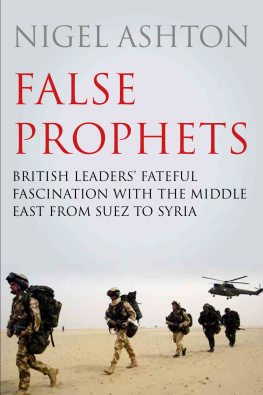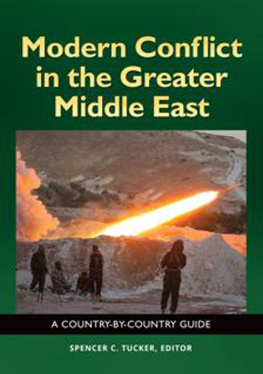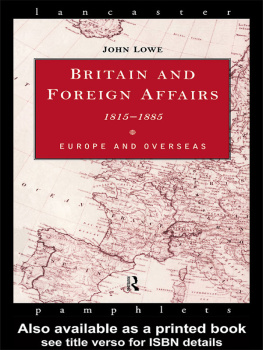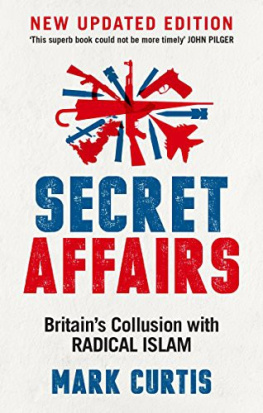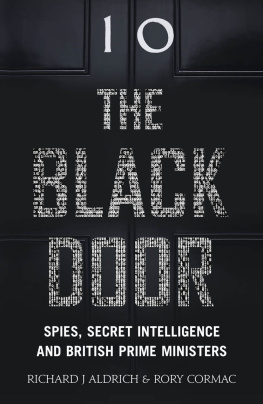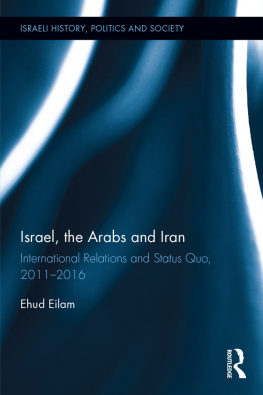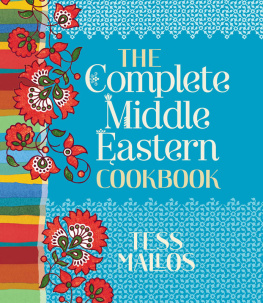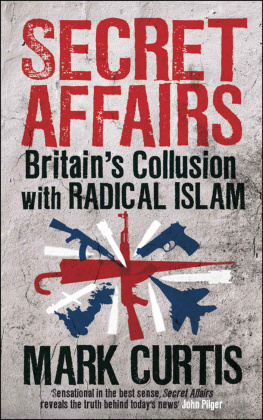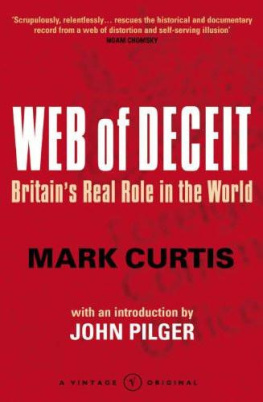Disrupt and Deny

Great Clarendon Street, Oxford, ox 2 6 dp , United Kingdom
Oxford University Press is a department of the University of Oxford. It furthers the Universitys objective of excellence in research, scholarship, and education by publishing worldwide. Oxford is a registered trade mark of Oxford University Press in the UK and in certain other countries
Rory Cormac 2018
The moral rights of the author have been asserted
First Edition published in 2018
Impression: 1
All rights reserved. No part of this publication may be reproduced, stored in a retrieval system, or transmitted, in any form or by any means, without the prior permission in writing of Oxford University Press, or as expressly permitted by law, by licence, or under terms agreed with the appropriate reprographics rights organization. Enquiries concerning reproduction outside the scope of the above should be sent to the Rights Department, Oxford University Press, at the address above
You must not circulate this work in any other form and you must impose this same condition on any acquirer
Published in the United States of America by Oxford University Press 198 Madison Avenue, New York, NY 10016, United States of America
British Library Cataloguing in Publication Data
Data available
Library of Congress Control Number: 2017954183
ISBN 9780198784593
ebook ISBN 9780191087530
Printed in Great Britain by Clays Ltd, St Ives plc
Links to third party websites are provided by Oxford in good faith and for information only. Oxford disclaims any responsibility for the materials contained in any third party website referenced in this work.
For Joanne
Acknowledgements
I began this book in 2011 as a postdoctoral researcher at Kings College London and finished it in 2018 as an associate professor at the University of Nottingham. It has been an ever-present, a reliable old friend, as my career and family have grown. The research has taken me to places I am privileged to have visited and people I am fortunate to have met.
I am very grateful to the Arts and Humanities Research Council for funding the research through my early career fellowship. The money, and more importantly the time, created the space which allowed me to realize the potential of such a vast undertaking. Tracing British covert action, which does not officially exist and for which the files are indefinitely closed, has required years of archival research around the UK and the US. I am also grateful for the Institute of Historical Researchs Scouloudi Subsidy which allowed me to first visit archives in Washington DC.
There is no way I could have completed this project without regular support, advice, and tip-offs from friends and colleagues. Id like to thank Christopher Andrew, Gordon Corera, Philip Davies, Andrew Defty, Rob Dover, Huw Dylan, Paul Elston, David Gill, David Gioe, Anthony Glees, Peter Hennessy, Michael Herman, Claudia Hillebrand, Davinia Hoggarth, Gerry Hughes, Loch Johnson, Clive Jones, Matthew Jones, Paul Maddrell, Tom Maguire, Steve Marrin, Peter Martland, Paul McGarr, Chris Moran, Philip Murphy, David Omand, Mark Phythian, David Porter, Mike Poznansky, Dina Rezk, Julian Richards, Len Scott, Zakia Shiraz, Mark Stout, Phil Tinline, Chris Tuck, Damien van Puyvelde, Calder Walton, Cees Weibes, Simon Willmetts, and John W. Young. I am also particularly grateful to all those who have spoken to me off the record. Special mention goes to Huw Bennett, Steve Long, and Andrew Mumford for reading various chapters and offering valuable feedback.
I would like to offer particular thanks to three colleagues who are sadly no longer with us. Alex Danchev provided intellectual guidance and great company when I first started at Nottingham. Keith Jeffery was always so generous with his time and support for early career researchers, myself included. Chikara Hashimoto generously shared archival files and FOI requests with me. He was a great scholar whose potential will tragically be unfulfilled.
I have been fortunate to visit numerous archives over the last few years, where the staff have been unfailingly courteous and helpful. I have always particularly enjoyed working at Churchill College Cambridge and I had a fabulous time at the Eisenhower Presidential Library and Archive in Kansas. I would like to thank Churchill College for permission to cite the Amery papers. Most of my research was conducted at the National Archives at Kew and I am grateful to the staff there for bringing me thousands of files, many of which I promptly returned and then asked for yet more. Kings College London, the University of Warwick, and the University of Nottingham all also provided wonderful environments for research. Digital copies of some of the key documents used in this book as well as those secured using the Freedom of Information Act are available at https://www.nottingham.ac.uk/cst/research/most-unusual-measures/index.aspx.
There are a few individuals to whom I owe a particular debt. My literary agent Andrew Lownie managed to secure me the perfect publisher for this book. Matthew Cotton, Luciana OFlaherty, and the team at Oxford University Press put their faith in it and helped it become a reality. My research assistant, Annabelle de Heus, kept me on the straight and narrow. I would not be where I am today without two great scholars who have shaped this project and my career more broadly. They have helped the book reach its potential, always had my back, and, most importantly, kept academia fun. Michael Goodman has read not only the entire manuscript but also tens of thousands of words left on the cutting-room floor. And Richard Aldrich is simply Richard Aldrich.
This is a history of things that did not officially happen using primary sources that few realize exist. I am very proud of the story Ive been able to tell but mistakes are mine alone. Please do write with corrections and clarifications to .
Finally, my wife Joanne has, as ever, listened to my witterings and encouraged my endeavours. And Id like to add an anti-acknowledgement to my son, Finlay: he was born two months before the book was due and did his very best to stop me completing it. For that I will always be grateful.
Contents
| 9/11 | Universal shorthand for the terrorist attacks on America, 11 September 2001 |
| AC(M) | Ministerial Committee on Communism |
| AC(O) | Official Committee on Communism (Overseas) |
| C | Chief of the British Secret Intelligence Service |
| CIA | Central Intelligence Agency (US) |
| CSC | Counter-Subversion Committee |
| FRU | Force Research Unit |
| GCHQ | Government Communications Headquarters |
| IRA | Irish Republican Army |
| IRD | Information Research Department |
| ISC | Intelligence and Security Committee |
| JAC | Joint Action Committee |
| JIC | Joint Intelligence Committee |
| KGB | Committee for State Security (Soviet intelligence) |
| MI5 | Security Service |
| MI6 | Secret Intelligence Service, or SIS |
| MRF | Military Reaction Force |
| NATO | North Atlantic Treaty Organization |

